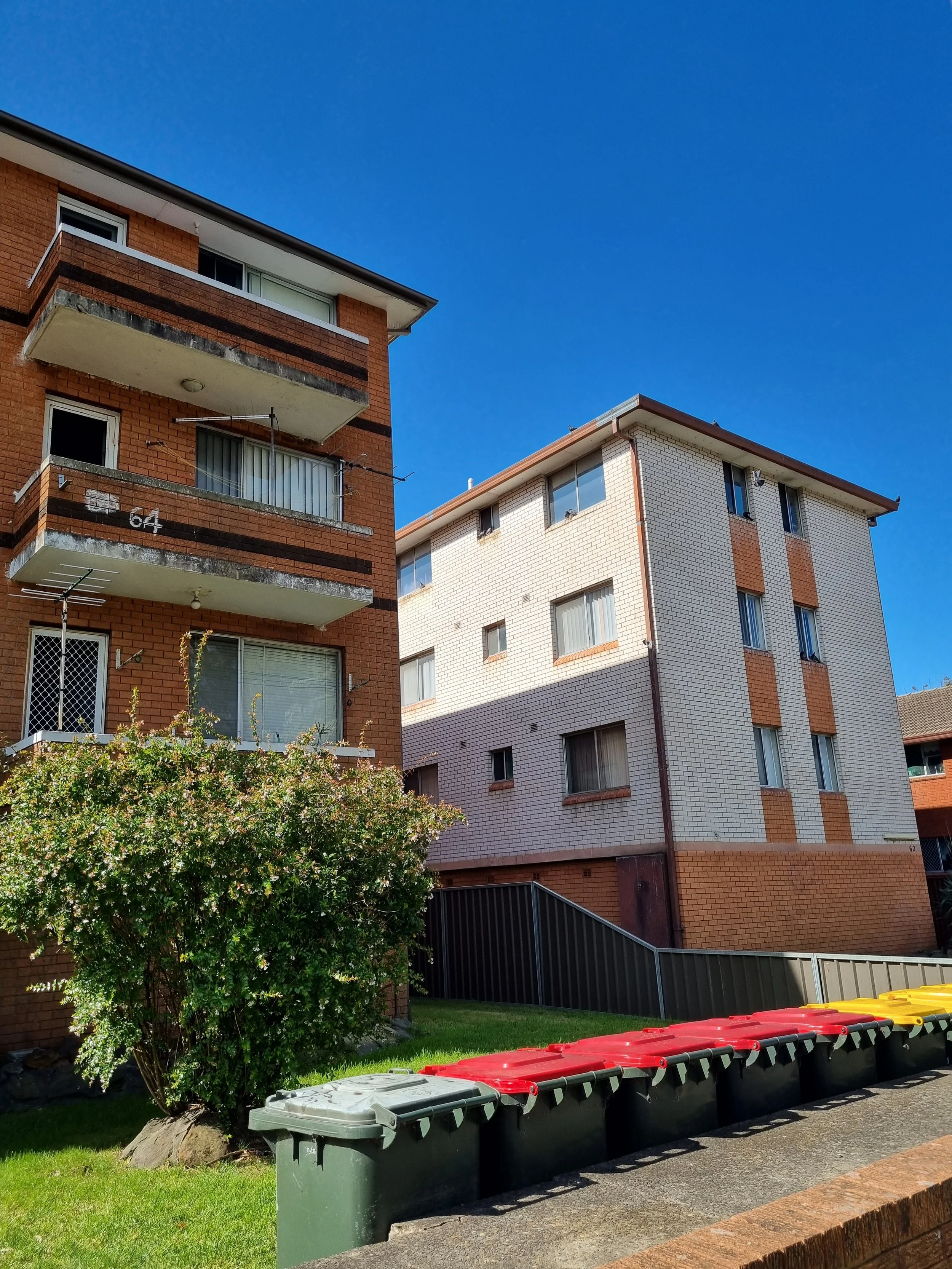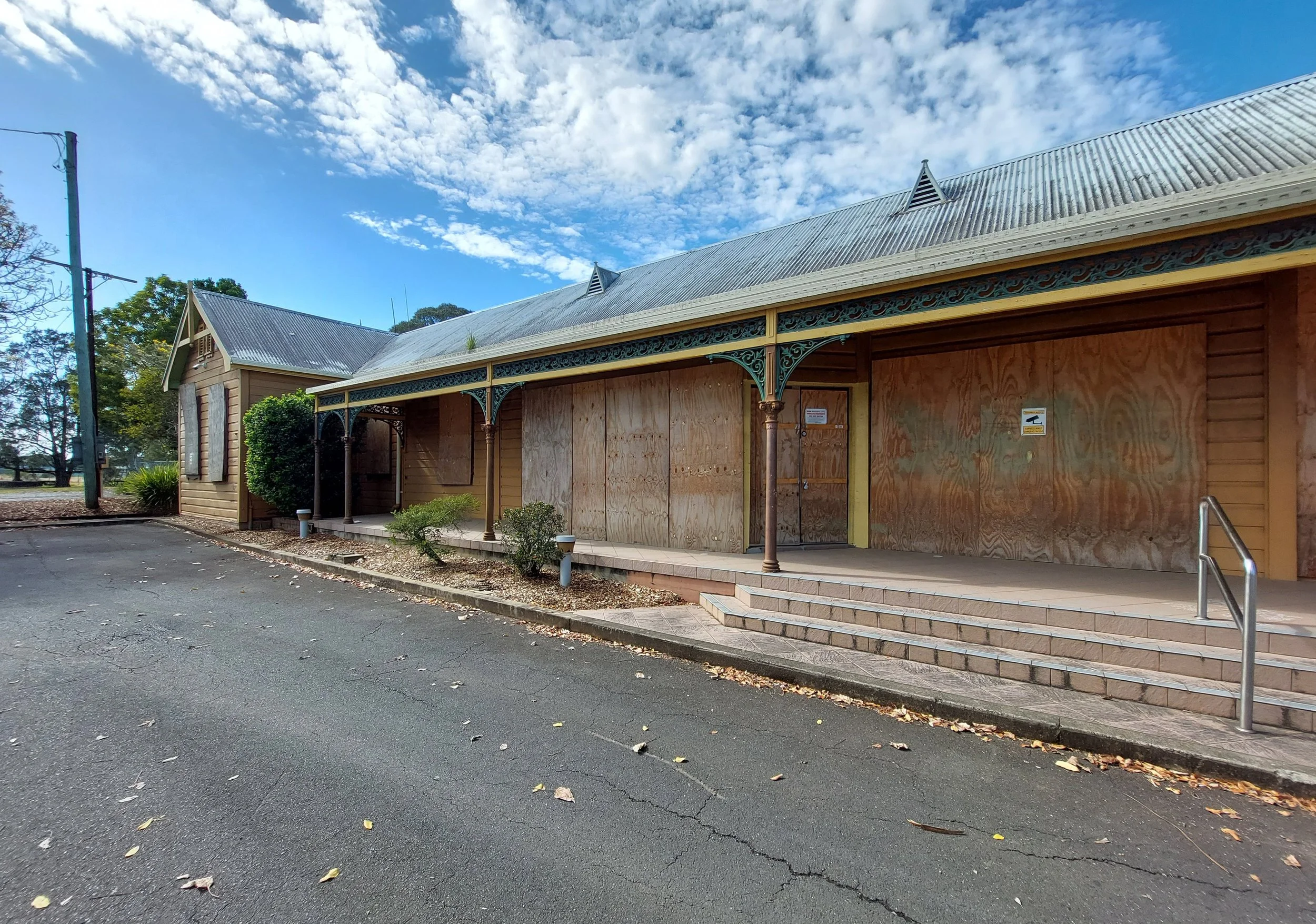Closing Loophole Bill Partially Passed, NSW GOV De-privatises Social Housing Maintenance and Northern Rivers Community Ignored: Red Report Back 13.11.2023-20.11.2023
Closing Loophole Bill Passed, Industrial Relations Split
Jasabella, CC BY-SA 2.5 <https://creativecommons.org/licenses/by-sa/2.5>, via Wikimedia Commons
On Thursday, the ninth of November, the Senate passed a motion to split the government’s industrial relations legislation into four separate bills with backing from Senators Jacqui Lambie, David Pocock, the Coalition and One Nation. Introduced by Lambie and Pocock in mid-September, the bill sought to spin-off and pass areas of the ‘Closing Loopholes Bill’ they perceive as less fraught, including restricting large businesses from exploiting small business tax concessions and new anti-discrimination measures to protect victims of domestic violence. Additionally, the portion of the bill enacting new market regulations of products containing silica dust was also singled out for speedy passage through senate alongside new measures seeking greater accessibility of aid services for first responders living with PTSD. Industrial Relations Minister Tony Burke has described the split as a “charade” and warned of the core bill being guillotined should Lambie and Pocock’s motion succeed despite not voting against the motion. Notwithstanding, The Financial Review reported that Labor has no intention of bringing forward the separate parts of the bill in the Lower House, therefore the vote to split the bill will not be legally binding.
Both Lambie and Pocock have described ‘Closing Loopholes’ as a “beast of a bill” while Lambie took further swipes at the Industrial Relations minister, accusing Burke in a media release of having “purposely bundled common sense changes in with his more controversial ideas to pressure us to pass the whole lot.” Senator Pocock displayed even more caution when alluding to the core bill in a statement to the media:
“We have to get on with delivering what added protections we can now, while we work through the also important but more complex elements of the Closing Loopholes omnibus bill.”
We initially reported on the Closing Loopholes Bill in more detail last month and warned of opponents such as the increasingly powerful Business Council of Australia. Leaving aside any power the BCA have over the cross bench, Pocock and Lambie specifically deserve scrutiny. Readers of the Red Report Back are encouraged to cast an eye towards the parts of the bill described by Lambie and Pocock as being controversial and complex respectively, these are:
- Upping pay and conditions for gig economy workers.
- Introducing suitable punishments for intentional wage theft.
- Setting minimum standards of minimum pay for labour hire workers.
- Beefing up penalties for companies in breach of the Fair Work Act (2009) and
- Establishing clearer statutory criteria for divining part-time, permanent or casual work.
In official communications, Pocock kept his reasoning for splitting the bill centered on altruism, saying about first responders in a video posted to twitter that “the system just isn’t helping them quick enough”. While echoing this sentiment, Lambie levelled sharper criticism at the government in a media release, accusing Tony Burke of political cynicism and exploitation of emergency services. Both senators’ motivations should be treated with suspicion. Though senator Pocock spent his time in the senate acting as an archetype of LinkedIn progressivism, his voting record paints reveals he uses ‘complexity’ to disguise his subservience to the ruling class agenda.
In 2022, he voted against a bill allowing whistleblowers to seek professional assistance from appropriately skilled union officials. He’s voted consistently against decreasing government funding for private schools, against increasing scrutiny of the ADF and against increasing oversight of intelligence services or Police. Despite making a point to vote in favor of progressive climate and gender legislation, either the influences of the Canberra Bourgeoisie or his prior education at Harvard Business School seem to be decisive when it comes to voting.
NSW Government Retreats from Privatised Social Housing Maintenance
The NSW Government is preparing to make a slight retreat from the privatisation free-for-all in the state in recent years. In a revealing move, the management of maintenance for 95,000 “social” housing properties will be brought back under public control, with the government labelling the current system “confusing, disjointed and unworkable” and a source of vast wait times for repairs – although they lay all the blame at the feet of their Liberal colleagues, of course.
Looking beyond petty political point scoring between Liberal and Labor, what this case really shows us it that privatisation – and by extension, capitalism – is totally insufficient when it comes to providing public services, even services as fundamental as a roof over your head that isn’t leaking or covered in mould. Wherever you look, outsourcing and privatisation leads to far inferior services – and even champions of capitalism like the NSW Labor Party can only push the gravy boat so far before having to bring certain aspects of services back into public control. It’s worth stressing, though, that capitalist parties can only bring themselves to reverse privatisation to a certain extent, because putting public goods into public hands goes against everything they believe in – after all, without privatisation, where will their capitalist buddies extract their profits from?
As far as this announcement goes, we see that NSW Labor – despite literally namechecking privatisation as the cause of the current shitshow – will still be outsourcing repairs to private businesses under the new system. Only the overarching management and “triage” will be done by the new “Maintenance Hub” of Homes NSW. It would seem more efficient to have dedicated government employees to service these repairs, and there’s certainly enough jobs waiting to be done to warrant them – the government claims to receive 1,700 social housing maintenance requests every day (requests the current privatised management is utterly mishandling).
While it is great to see the pendulum of privatisation swinging the other way for once, watching Premier Minns and Housing Minister Rose Jackson take a victory lap over this announcement feels like seeing an ant throw a party after taking its first step up Mt Everest. We are well aware of the ability of NSW politicians to flap their gums, now we look forward to watching them walk the walk. Seeing as the NSW Government has once and for all declared privatisation a failure, presumably government departments all across the state are now hard at work following through on that declaration – and who better to keep the ball rolling than the Housing Minister?
Ms. Jackson called the NSW Government “one of the worst landlords in the state” – and despite a packed field, it’s hard to argue. Since she’s evidently a big proponent of reversing privatisation, perhaps she should continue what she’s started – by removing any aspect of the delivery of adequate homes from private hands, tearing up community housing contracts, ceasing the demolition of public housing stock, ending the replacement of those demolished homes with “affordable” (i.e. privatised) dwellings, and committing NSW to the delivery of a robust public housing system that is truly public and truly serves the people, and not an inefficient and greedy mishmash of private interests and self-serving political gestures.
Northern Rivers Flooded Community Ignored and Forgotten
Tony 1212, CC BY-SA 4.0 <https://creativecommons.org/licenses/by-sa/4.0>, via Wikimedia Commons
It’s been almost two years on from the climate-change driven NSW floods that destroyed almost five-thousand homes, and severely impacted the lives of tens of thousands of northern rivers residents, yet many of these families remain forgotten and ignored.
The then Coalition government promised the $700m ‘resilient homes program’ would see homes raised, retrofitted, or ‘bought-back’. Families devastated by the floods were told that 6000 homes would be eligible for the program. Eighteen months on that promise has been reneged by the Minns Labor government to just over a thousand.
The NSW reconstruction authority investigated what actions the government has taken in accordance with their reneged commitment. They found that less than 800 buy-backs had been offered, with only half of those being accepted, and that not a single retrofit or raising had happened yet.
Under any system, post-disaster recovery will be a complex and difficult undertaking. Ignoring that reality is utopian and naïve. However, in a system that prioritises driving profits at the expense of workers and the ecosystem, it will always be demonstrably far worse.
We cannot ignore the grim truth of this matter. Northern-rivers families have been wrecked by catastrophe. Their homes were destroyed, their entire lives were washed away, and they have been lied to about promised aid! They have been given crumbs and have been discarded as an afterthought and the implication is that they should just suck it up and move on. This is unacceptable.
Once more, capitalist caused ecological disasters have devastated working-class Australians, and the capitalist-class dictated Liberal and Labor governments have failed to implement even the most basic of reconstruction measures.
Under capitalism empty promises will continue to be whispered to workers by one government, and blatantly withdrawn by the next. These governments will continue to get away with ecological and social violence because they do not serve the working-class and do not answer to us. We cannot keep them accountable in a system that is built on the exploitation of the working-class and the endless destruction of our planet.
We need to build of a new kind of government that is democratically organised by workers themselves, and is accountable to us when catastrophe ensues.




